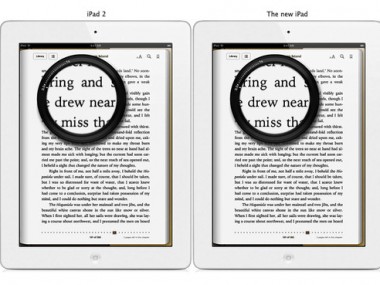Not Surprisingly, U.S. Teens Are Texting More, Talking Less
ICYMI, teens are totes texting more.
And texting is increasingly becoming the communication application of choice for teens, while actually talking on the phone is on the decline.
The not-entirely-surprising data comes from the latest Pew Internet Research Center report, which included responses from nearly 800 U.S. teens, ages 12 to 17.
The study showed that the average number of texts sent by teens of all ages on a typical day rose from 50 a day to 60 a day between 2009 and 2011. Older teens, ages 14 to 17, showed an even greater increase, from a median of 60 texts a day in 2009 to a hundred texts a day in 2011.
And while 30 percent of teens said in 2009 that they used a landline to speak with friends, only 14 percent now say they talk on a landline daily. A third say they never use a landline (the study didn’t seem to offer data on those who asked, “What’s a landline?”). Even talking to friends on cellphones is edging down, from 38 percent in 2009 to just 26 percent in 2011.
Interestingly, though, the biggest texters were also the heaviest talkers, signaling that teens who are into their cellphones … are really into their cellphones.
In general, more teens now own some type of mobile device. Some 77 percent of U.S. teens now own some kind of cellphone, up 2 percent from a couple years ago. There’s no real difference in gender, it turns out, with boys and girls equally as likely to own cellphones, but younger boys — ages 12 and 13 — are the least likely to be early (early) adopters of cellphones.
Most teens are still using basic phones: Some 23 percent of those surveyed own smartphones, compared to 54 percent who own basic cellphones. But the patterns are shifting increasingly toward smartphones, especially among older teens.
Of course, the apple doesn’t fall far from the tree: Just under half of U.S. adults now own smartphones, according to this recent report, outnumbering adults who own feature phones by 5 percent.
The new Pew study also shows that teens with parents who have higher education levels are more likely to own cellphones; teens in the ’burbs and teens who are very active on social media are also more likely to have mobile devices, Pew reports.
The Most Gorgeous Screen You’ve Ever Seen — Shattered (Video)
If you can’t get enough news about the new iPad, here’s yet another look at how Apple’s latest tablet fares, based on a certain test.
And if you are tired of hearing about the new iPad, this story might still bring a smile to your face.
The folks at gadget insurer SquareTrade have been putting new devices to the drop test for some time. So, naturally, they have put the new Apple tablet through similar torture, comparing it to the iPad 2 in drops from shoulder height and waist height. It should be noted that Apple has a new $99 AppleCare+ plan that covers accidental damage, for a $49 deductible. It’s good that the SquareTrade folks can take care of their own warranties, though, as I doubt their use counts as “accidental.”
I don’t want to spoil all the fun, but it’s fair to say you’ve never seen this many pixels tortured so much:
New iPad Display Passes With Flying Colors
The screen experts at DisplayMate have taken a look at the screen technology in Apple’s new iPad, and decided that it is indeed the best mobile display on the market, offering far better picture quality than any other portable screen on the market.
“Apple has taken the very good display on the iPad 2 and dramatically improved two of its major weak points: sharpness and color saturation,” DisplayMate’s Ray Soneira said in a report. “They are now state-of-the-art.”
Soneira had previously praised the iPad 2 display, as well as Samsung’s Galaxy Tab 10.1, which he said was the only Android tabletthen giving Apple a run for its money.
That’s not to say Soneira doesn’t see room for improvement in the new iPad.
Even with all its pixels, there is still theoretically some room for improvement, Soneira says, noting that some people actually see more detail than shown on a Retina display. That said, cramming more pixels onto the screen requires more battery capacity and additional processing power. As it is, Soneira notes that Apple had to increase the battery capacity in the new iPad by 70 percent just to maintain the same battery life it had with the iPad 2.
So, rather than focus on more pixels, DisplayMate suggests other areas for Apple to improve on, particularly the reflectiveness of the screen, which affects how well it does in brightly lit areas.
With “Coveted Brand,” Dell Will Breach Tablet Market
– Dell CEO Michael Dell on what has surprised
2012 isn’t going to be another year of the iPad,
if Dell can help it. Though it was forced tobeat a humbling retreat from the tablet market after its first effort, the Streak, failed to breach it, the company has high hopes for its next offering. Indeed, Dell Chief Commercial Officer Steve Felice says he believes the tablet market to be wide open to new entrants — despite the catastrophic fates of devices like Hewlett-Packard’s ill-starred TouchPad.
“We don’t think that this market is closed off in any way,” Felice recently told Reuters. How so? Particularly given the iPad’s behemoth market share?
Well, you see, Dell has a unique angle that it’s pursuing here, one that’s certain to give it a leg up over Apple.
“We come at the market in a different way,” Felice said. “We are predominantly a company that has a great eye on the commercial customer who also wants to be a consumer. In the areas where we come at the market, we think we are a coveted brand.”
Really.
First time I’ve seen Dell and “coveted brand” in the same sentence, too.
But tablets certainly don’t succeed on brand alone. And they don’t succeed on hardware or software alone, either — they succeed on the broader ecosystem surrounding them. Given that, what’s Dell’s pitch? Enterprise needs a tablet with dependable information, security and compatibility, and the company is going to deliver exactly that.
Said Felice, “On the commercial side there are a lot of concerns about security, interoperability, systems and device management, and I think Dell is in the best position to meet those.”




No comments:
Post a Comment